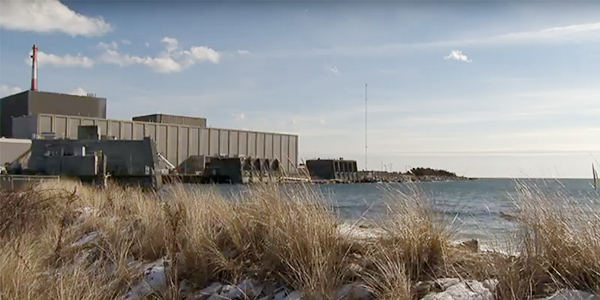Connecticut officials on Friday announced the selection of two nuclear plants, nine solar projects and one offshore wind project in the state’s solicitation for nearly 12 million MWh of zero-carbon electric power, equivalent to 45% of the state’s electric load.
“Despite President Trump’s refusal to listen to scientists on this matter, the reality is that urgent and significant action is needed to dramatically reduce our dependence on carbon-based energy sources,” Gov. Dannel P. Malloy said in a statement.
The selections help secure the future of Dominion Energy’s at-risk Millstone Power Station, the state’s only nuclear plant, and include energy from NextEra Energy’s Seabrook nuclear plant in New Hampshire. (See Connecticut Likely to OK Millstone for Zero-carbon RFP.)
One contract adds 100 MW to the prior selection of 200 MW from the Revolution Wind project being developed by Ørsted US Offshore Wind, formerly Deepwater Wind. Another award will create 165 MW of new solar generation in Connecticut and throughout New England, including two projects paired with energy storage.
Punting Price Negotiations
The selection of Millstone’s bid follows a Nov. 16 draft decision by the state’s Public Utilities Regulatory Authority (PURA) categorizing the 2,111 MW plant as “an existing resource at risk for retirement” without ratepayer support (Case 18-05-04).
“We agreed with PURA that the Millstone nuclear facility is at risk of early retirement and created an evaluation framework that lets us compare the costs of retaining the resource with the cost of replacing it over time with a variety of renewable resources,” said Department of Energy and Environmental Protection (DEEP) Commissioner Robert Klee.
Out of 24 different bids from Millstone, DEEP selected a 10-year bid for about 50% percent of the plant’s output.
“DEEP selected and treated this option as though it were two separate bids: one for the next several years when they are not considered at risk due to their existing market commitments, and one for the latter years,” said the press release.
The award selection directs Connecticut’s electric distribution companies, Eversource and United Illuminating (UI), to negotiate the price downward to better reflect a reasonable rate of return for Dominion.
“The selected price for the first three years reflects Dominion’s submitted energy-only price. For the at-risk period of the bid, 2022 to 2029, Eversource and UI are directed to negotiate for a price that reflects the costs and risks Dominion faces. The negotiations are requested to conclude by March 31, 2019,” the release said.
While a normal utility rate of return on equity is 9%, DEEP said it would consider 12% to 15% reasonable for a merchant power plant with a long-term contract.
However, “Dominion has sought a rate of return that is not in the best interests of ratepayers,” said the regulator.
Seabrook Station did not seek at-risk consideration and therefore did not disclose its operating costs to PURA.
“It was selected on the basis of its price of 3.3 cents/kWh levelized (3.9 cents/kWh nominal), which beats the market forecast and is projected to save Connecticut ratepayers $18 million per year over its eight-year term. The Seabrook contract begins in 2022 and is for 1.9 million MWh,” said the release.
Offshore Wind and Solar
Connecticut officials in June announced they would purchase 200 MW of output from the Revolution Wind project, adding to Rhode Island’s 400-MW procurement. (See Conn. Awards 200-MW OSW, 50-MW Fuel Cell Deals.)
The additional 100-MW “procurement is another step forward for Connecticut in growing its commitment to offshore wind,” said Emily Lewis, senior policy analyst at Acadia Center. “Adding more offshore wind to the state’s clean energy portfolio will continue the momentum of this growing industry … To ensure continued growth of this industry in Connecticut, the state should set an offshore wind mandate similar to other east coast states.”
As a result of drafting behind larger procurement processes in Massachusetts and Rhode Island, Connecticut obtained a 600-MW price for 200 MW of offshore wind and was also able to leverage the developer’s investment criteria, Matt Morrissey, vice president of Ørsted US Offshore Wind, said at an event in October. (See “Offshore Wind Savvy,” Connecticut Explores its Energy Future at CPES Event.)
While bid details remain confidential until the contracts are signed, state officials disclosed that Ørsted US Offshore Wind committed an additional $13.7 million to Connecticut and the port of New London for infrastructure enhancements, economic development and education.
The nine solar projects chosen include “the first selections of grid-scale energy storage as part of Connecticut’s energy procurements,” with an average levelized cost of about 4.9 cents/kWh, the release said.



